According to an EPA official, the automotive industry is moving toward turbocharged engines in the near future. By 2025, when the Corporate Average Fuel Economy (CAFE) standards reach their peak, approximately 90% of vehicles on the market are expected to feature turbocharged engines. A question arises: Could every new Toyota model come equipped with a turbocharged engine? If the EPA's predictions hold true, all these Toyota models could soon offer turbocharged engines. Do you think this is fact or fiction? Let us know what you think! WardsAuto had the chance to speak with Edward Nam, Director of the EPA’s Light Duty Vehicles & Small Engines Center in Ann Arbor, MI, during the SAE World Congress. He mentioned that current turbochargers typically operate at pressures up to 261 psi (18 bar), but predicts that by 2016, 348-psi (24-bar) turbochargers will hit the market and become widespread by 2025. Brake mean effective pressure refers to the average pressure within the engine’s combustion chamber during each cycle. “We believe turbochargers will continue to improve, allowing engines to enhance their efficiency over time,†Nam told WardsAuto. Nam explained that turbocharged engines are set to become significantly more efficient, making them the preferred engine technology for automakers. Alongside advancements in internal combustion engines, improvements in transmissions, tires with lower rolling resistance, and better aerodynamics, these developments are expected to help vehicles achieve the 54.5 MPG target. “We think most manufacturers should be able to meet the standards primarily through innovations in internal combustion engines and improvements in emissions control systems,†Nam told WardsAuto. “There are numerous technologies available to help achieve these goals.†Nam also noted that turbocharged engines will result in vehicles becoming more efficient while using fewer cylinders. For instance, he suggested that large vehicles like the Ford F-150 or Chevrolet Silverado could potentially be powered by four-cylinder engines in the future. Many manufacturers, including Toyota, have invested heavily in research and development to find ways to provide consumers with vehicles offering both power and improved fuel economy. Efforts have spanned all-electric vehicles, plug-in hybrids, diesel engines, and other hybrid configurations. However, Nam stated that the EPA expects electric or plug-in vehicles to represent only about 3% of the market. While diesels and other hybrid types may have some presence, they won't constitute a major portion of the market. Despite the scientific backing behind turbocharged engines with smaller displacement sizes, real-world testing has yet to fully validate these claims. One of the biggest criticisms comes from Consumer Reports, which found limited or no tangible benefits from turbocharged engines (check out the Consumer Reports story and video below). Additionally, there are concerns regarding EPA estimates, as some manufacturers, such as Toyota, use real-world fuel economy figures instead. Assuming these numbers are accurate, Nam stated that turbocharged engines could save 4 billion barrels of oil and reduce greenhouse gas emissions by 2.2 billion tons between 2017 and 2025. This would equate to average lifetime fuel savings for consumers of around $5,700 to $7,400, assuming gasoline prices remain at $3.87 per gallon. However, these potential savings come with higher upfront costs that will likely be passed on to consumers. Nam estimated that vehicles sold in 2025 will cost approximately $1,800 more than those sold in 2016, when the initial CAFE regulations take effect. Higher upfront expenses coupled with longer payback periods mean many car owners might need to keep their vehicles longer to experience any real financial benefit. So, what do you think? Is the EPA correct in predicting that turbocharged engines will dominate the automotive landscape in the coming years? As the debate continues, one thing is clear: the future of automotive engineering is rapidly evolving, and turbocharged engines seem poised to play a central role. But whether this shift will deliver on its promises remains to be seen. Time will tell if the EPA's projections align with reality, or if alternative solutions will emerge to challenge the dominance of turbocharged engines. Sewer Jetter Hose,Spray Jets,Jetting Hose,Sewer Jetter Kit Ningbo Mingou Cleaning Equipment Co., Ltd. , https://www.mingouwash.com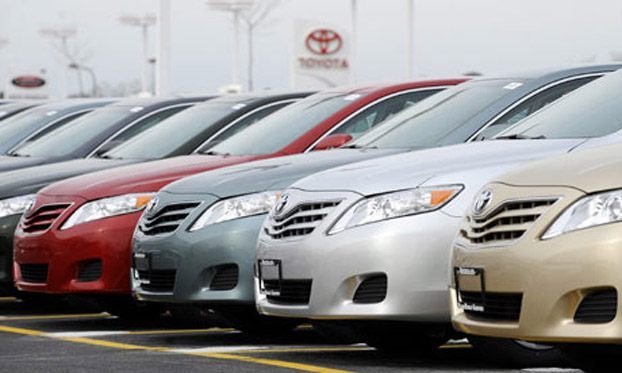
Related Posts
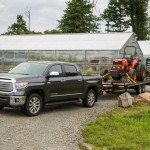 Toyota Wins Towing Safety Award – Only Automaker Adopting Standard
Toyota Wins Towing Safety Award – Only Automaker Adopting Standard
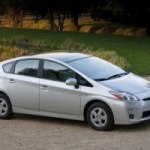 2010 Prius News
2010 Prius News
 Lexus And Toyota Avalon Recall Hits Dealership Floors
Lexus And Toyota Avalon Recall Hits Dealership Floors
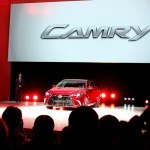 2015 Toyota Camry Vs. 2015 Hyundai Sonata – NYIAS First Glance
2015 Toyota Camry Vs. 2015 Hyundai Sonata – NYIAS First Glance
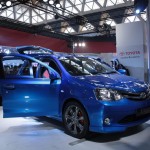 New Concept In India
New Concept In India
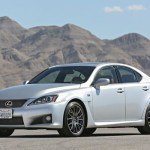 Toyota Trying To Attract Younger Drivers To Lexus With New Image
Toyota Trying To Attract Younger Drivers To Lexus With New Image